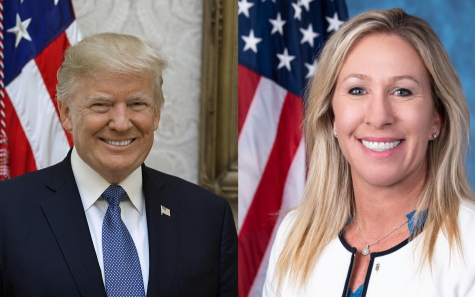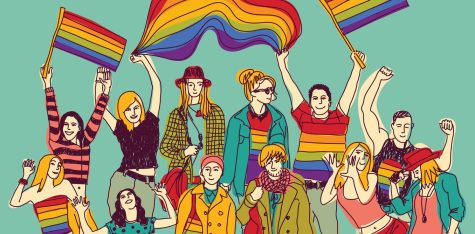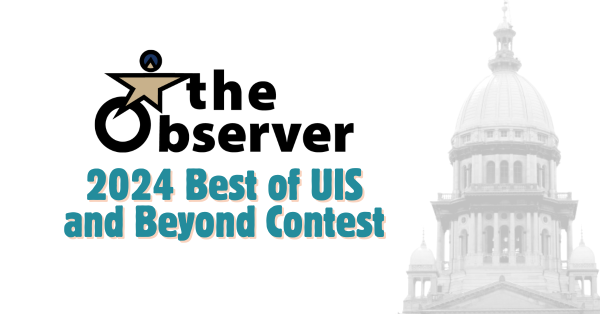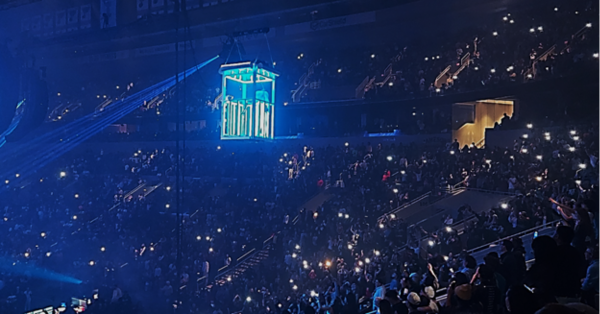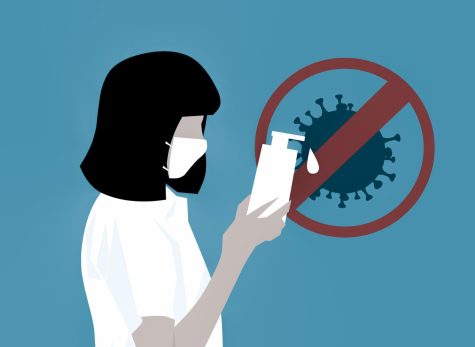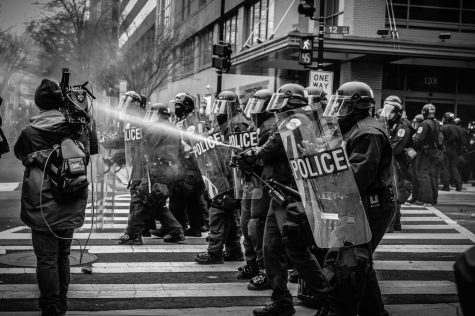Lil Nas X and the Fight for LGBTQ+ Representation
Lil Nas X ft. Jack Harlow Perform "Industry Baby" & "Montero" | 2021 VMAs | Courtesy of MTV
The battle for representation, in media and entertainment, among the LGBTQ+ community is a story fraught with discrimination, exclusion and the fight against heteronormative control of the LGBTQ+ image in society. The LGBTQ+ community has fought for years to show we are not a monolith, but rather we are individuals, with a great deal more depth than the media representations of LGBTQ+ archetypes generated by a majority of heteronormative creatives. Now I am going to say the quiet part out loud. There is more than just the media’s image of the cisgender, primarily white, gay man or lesbian woman – and it has taken far too long for us all to appreciate that. We have only recently seen real intersectional representative members of the LBGTQ+ community in media and entertainment, and that has not been without a fight from creatives to tell their stories.
I am a cisgender white gay man and I know this tale all too personally. Let me illustrate this for you with a personal story. I came out when I was 13, something that was very difficult, even in 2002. However, the experience was nothing like generations prior, who experienced the horrifying reality of living their everyday lives and fighting with their blood, sweat and tears for the rights we have today. But don’t let me kid you, in 2002 the issue of LGBTQ+ rights and acceptance in society was forefront in our culture. This was prior to the 2003 case Lawrence vs. Texas, the case that declared sodomy laws, which governed the legality of homosexual sexual acts, unconstitutional in the United States.
When I came out, it was a confusing time and, in retrospect, a very lonely time. I was fortunate when it came to my family. At all times supportive, they were always there for me, the number one cheerleaders in my life. Acceptance from my peers was considerably more hit or miss. Teenagers can be cruel and I experienced my share of cruelty at that age. Not to mention the confusing minefield of trying to start dating. Where did I meet people? How did I talk to them? What if they are not gay? Just a few of the questions I dealt with at the time. Luckily, as I entered high school, I found more LGBTQ+ people, with whom I built some lifelong friendships, and started immersing myself in the LGBTQ+ scene in Baltimore. I finally discovered an entire community of people who experienced the same trials and tribulations, with the ability to truly relate to the struggle.
But it took years of enduring overt homophobia, verbal assaults, physical altercations and worries of “gay bashing” to finally start to understand what it meant to be gay. At that time, being gay was not something socially accepted by the mainstream, and there were not many inclusive spaces. In terms of media and entertainment there was very little LGBTQ+ representation. In 1994, MTV broke ground with The Real World: San Francisco and the story of a young man named Pedro Zamora. Zamora was a Cuban-American, one of the first gay men living with AIDS to ever appear on television. It was huge for the community. Finally, authentic representation of the reality of being gay and living with HIV in the early 1990s.
The LGBTQ+ community at the time had been completely ravaged by the horrors of the emergence of HIV in the 1980’s, prior to the creation of the groundbreaking, and lifesaving, anti-viral therapies that exist today. These medications allow people with HIV to live normal lives and achieve an undetectable status, or as we in the community like to say: U = U undetectable equals untransmittable. Additionally, today there exists PrEP (Pre Exposure Prophylaxis), for people who are HIV negative. According to the CDC “PrEP reduces the risk of getting HIV from sex by about 99% when taken as prescribed.” At that time, however, none of these things existed and HIV was a death sentence still for many people. So, The Real World humanized that experience, radically changing how people viewed HIV and the people who live with it. Sadly, Zamora died from AIDS-related progressive multifocal leukoencephalopathy on Nov. 11, 1994. Media representation, as this illustrates, is essential because it allows us to humanize the experience of other people who are different from us.
Many more years passed before true LGBTQ+ representation was reached in media and entertainment. The late ‘90s and early 2000s brought more representation: Will and Grace (1998), Ellen (2003), Queer as Folk (2000), Queer Eye for the Straight Guy (2003) and The L Word (2004). Notably, with the exception of The L Word, the representation was not very inclusive. Most of these shows had exclusively white cisgender LGBTQ+ characters. As a white, cisgender, gay man, I was thrilled to finally see people like me on TV living their queer lives – however, there were many others who felt excluded, underrepresented and unheard. It took me years to realize this, as much as it pains me to say, but I see it so clearly as I sit here today.
Finally, over the past decade real representation has emerged. Not just the idea of what heteronormative creators think LGBTQ+ people are, but real characters created and played by members of the community. In 2013, Orange is the New Black premiered on Netflix with Laverne Cox, a transgender person of color, playing Sophia Burset a transgender woman. This was huge for the community and brought Cox an Emmy in 2014 – the first openly transgender person to ever win an Emmy. This was the beginning of those previously unheard finally getting a voice.
In 2018, the critically acclaimed show, Pose, premiered on FX. Pose took the emergence of representation that started in Orange is the New Black and built on it exponentially. From the official website of the show: “Pose is a drama spotlighting the legends, icons and ferocious house mothers of New York’s underground ball culture, a movement that first gained notice in the late 1980s. Making television history, Pose features the largest cast of transgender actors in regular series roles, including Mj Rodriguez, Dominique Jackson, Indya Moore and Hailie Sahar, who co-star alongside Tony Award® winner and Golden Globe® nominee Billy Porter, Angel Bismark Curiel, Dyllón Burnside, Sandra Bernhard and Jason Rodriguez. The Golden Globe-nominated drama also features the largest recurring cast of LGBTQ actors ever for a scripted series.”
This was one of my proudest moments, as a gay man, to finally see the real stories of relatable characters, in a time that was so very difficult for the community as a whole. It was uplifting to speak with transgender friends and hear how happy they were to finally feel seen and heard, and to see stories that resonated so clearly and personally on cable television. It was truly another groundbreaking moment for our community during such a turbulent time for transgender people – it really let the world see a part of the community that has never had their fair share of screentime, representing an era and hardship that still reverberates clearly among the LGBTQ+ community.
You are probably wondering at this point: what is the purpose of what I just read? That is because background is necessary as foundation of the importance of representation as we turn the conversation to Lil Nas X. I am so excited and thrilled for the current generation of LGBTQ+ young people to have someone in whom they can see themselves, such as Lil Nas X. He serves as authentic representation for queer people of color, who rarely if ever get their stories told. It has been said often that the hip-hop music industry is notorious for a history of being blatantly homophobic. While that is not true for everyone involved, it is true on a macro level. Lil Nas X is here to change that and I could not be any prouder to witness this. As someone who also spent 15 years in the music industry, in electronic music, I know exactly how hard it can be, not only to break through as an LGBTQ+ person in music, but to live and speak your truth while doing it.
Lil Nas X, also known as Montero Lamar Hill, came to notoriety in 2019 with a song he performed with Billy Ray Cyrus, “Old Town Road,” which topped Billboard’s Hot 100 for 19 weeks straight, winning multiple awards, including two Grammys. During the time “Old Town Road” was atop the Billboard’s Hot 100, Lil Nas X also came out as gay. Following “Old Town Road” with the release of his EP 7, Lil Nas X also released the singles “Panini” and “Rodeo” featuring Cardi B. More recently, Lil Nas X released his singles “Montero (Call Me By Your Name)” and “Industry Baby” featuring Jack Harlow preceding the release of his studio Album, Montero, which is an exploration of his life as a LGBTQ+ person.
Following his coming out as gay, Lil Nas X has faced wave after wave of fierce backlash over his life choices, personal comments and the undeniable authenticity of being himself. His critics have ranged from angry parents and pundits on the right of our political sphere to even his fellow hip-hop artists. But Lil Nas X doesn’t let these naysayers get him down. Instead, he continues to live his undeniable truths no matter who it may upset. I find it inspiring to see a truly representative LGBTQ+ person living the life they want to live, in the public eye, and not caring about what heteronormative ideals of acceptability society thinks they need to fit into.
i usually don’t respond to negativity from my peers. but this had to be said. https://t.co/j4mJIYaCdB
— MONTERO 🦋 (@LilNasX) July 29, 2021
I like to refer to Lil Nas X as the “King of the Clap Back.” For those that do not know what a clap back is, according to Merriam-Webster it is “to respond quickly and sharply to criticism.” Lil Nas X does this in a perfect mixture of comical cynicism, wit, and giving no quarter. A few notable instances include the recent controversy surrounding DaBaby and Boosie Badazz. DaBaby made critical comments about gay men and HIV in reference to Lil Nas X at Rolling Loud, a music festival at Miami in July 2021. Badazz, on the other hand, went on a homophobic slur-laden rant on Twitter about Lil Nas X in support of DaBaby. Both situations, earned quite a few clap back tweets – most of which I will not reiterate here – but you can see the full story from Billboard. Ultimately, Lil Nas X used this moment to not back down from his undeniable truth and to promote his new music, in the process demonstrating they did not even deserve a response.
#LilNasX told a three-part LGBTQ+ fairytale with his #AtelierVersace look at the #MetGala2021. #VersaceCelebrities pic.twitter.com/2vBXEWVLm5
— VERSACE (@Versace) September 13, 2021
An entire article could be written about Lil Nas X Twitter clap backs, but for brevity I will not indulge further. You can follow Lil Nas X on Twitter and explore his social media escapades for yourself. What you will see time and time again is an unwillingness to step away from living his truth and the willingness to fight for what he deserves, which is respect and equality. Young LGBTQ+ people need to see this. They need to know they have someone they can relate to, who is not a caricature but instead undeniably authentic. They need to be able to see they can live their own lives with undeniable authenticity as well and do not have to live within the boundaries of heteronormative restrictions. I only wish when I was growing up as a young gay man that I also had this type of incontrovertible representation instead of the cookie cutter heteronormative media image of a gay man.
Beyond his social media life, Lil Nas X continues to drive this incontestable authenticity through all facets of his career in music. From his many red carpet outfits breaking heteronormative barriers of acceptability, including his most recent three outfit ensemble that he wore to the Met Gala; to his new album, Montero, that features stories of LGBTQ+ people and the problems we face in our lives that only LGBTQ+ people can truly understand through lived experience; to his music videos that feature some undeniably explicit views of gay physicality; to his live performances that do not censor the explicit views of gay physicality present within his dance routines. He is living his life, his truth, and he doesn’t care what others think – and I have to say, I love it. Finally, for LGBTQ+ people, especially for the people of color, there is real, indisputable, authentic representation and it is not going anywhere. And in representation comes strength, endurance, and the ability to see ourselves.
I understand that some people, usually more conservative people, have some issues with some of the things I have mentioned. But guess what? I do not care, truly. I have no problem saying that. For my entire life I, along with the rest of the LGBTQ+ community, have had to care what heteronormative society thinks about our life, our choices, our love life and even our sex life. Well, that is no more, and I implore my fellow LGBTQ+ students, friends and strangers to live their undeniably authentic lives just like Lil Nas X. The time of hiding is over, the time for conforming is past, and the time for accepting things as “that’s just how it is” is dead. It is time to break barriers and embrace who we are, the good, the bad, and even the uncomfortable.
Especially the uncomfortable, because reality is, if people are uncomfortable with you living your undeniably authentic life as an LGBTQ+ person then they are the one with the problem, not you. I’m tired of forcing myself to “fit in” or “not make waves” and you should be too. In fact, I make it a point to make people who claim to be accepting grapple with their implicit biases through being uncomfortable. Do not ever let anyone tell you who you are, what you can be, or what is acceptable just because it doesn’t fit into their idea of acceptability as fed to them by heteronormative society. If you look good in that dress, wear it. If you like the glow that make up gives your skin, use it. If you like pushing the boundaries of heteronormative relationships, do it. At the end of the day, these are our lives, and each of us only get one.
I am a firm believer in not wasting time – it is our most valuable resource, and once spent, we never get it back. So, do not waste yours living a life that is not true to yourself. Take inspiration from Lil Nas X and the many that have come before us to live your undeniable truth because the people that truly care about you will not feel uncomfortable. They will celebrate you, root for you, and be happy for you to see you living your undeniable truth. Stop worrying about if you are doing the “right thing” and do your thing, live your life, and do not look back with regrets. One of the hardest lessons for me to learn as a gay man was to live my undeniable truth no matter what, and I certainly hope that is something I can share with the LGBTQ+ people, and their allies, who read this. In closing, I leave you with a personal thought, for all the naysayers out there all I have to say is:
We’re here, we’re queer, and we’re not going anywhere, honey. 😉




